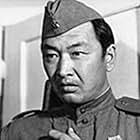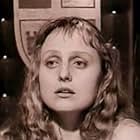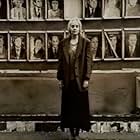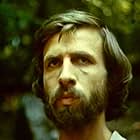Mostly inspired from Kafka's unfinished novel "The Castle", a man gets called to a village for a job that no one called for, finds himself tangled up in a super-bureaucratic mess, and now he... Read allMostly inspired from Kafka's unfinished novel "The Castle", a man gets called to a village for a job that no one called for, finds himself tangled up in a super-bureaucratic mess, and now he needs to fight his way around it.Mostly inspired from Kafka's unfinished novel "The Castle", a man gets called to a village for a job that no one called for, finds himself tangled up in a super-bureaucratic mess, and now he needs to fight his way around it.
- Director
- Writers
- Stars
- Awards
- 2 wins & 2 nominations total
Vladimir Kuznetsov
- Hans
- (as Volodya Kuznetsov)
Richard Bogutskii
- Hotel Owner
- (as Konstantin Bogutsky)
- Director
- Writers
- All cast & crew
- Production, box office & more at IMDbPro
Featured reviews
After watching two conventional screen adaptions - by Rudolf Noelte (1968) and Michael Haneke (1997) - I was well prepared to appreciate the very different and much more cinematographic approach by Aleksey Balabanov. It's not a drab study in futility and paranoia, but a colorful grotesque with lots of strange new ideas added to the original story. That's not to say he disrespected the source material, some details in his movie are actually better than in the two afore-mentioned ones. Complementary to the strangeness of Kafka's novel, he created an entertainingly surrealistic atmosphere. The Surrealism and the book were both born in the 1920s, so I'd like to call this addition age-appropriate.
Of the three screen adaptions, this one features the best snow-covered landscape, the best locations, the best art direction, the weirdest people, by far the most people and the youngest leading actor. This is not a musical, but there is a lot of music and singing going on, mostly in the busy backgrounds. But even if this movie version of a Kafka book is more pleasant than others and could be enjoyed by quite a few viewers, this "Fun with Kafka" has of course the emphasis on "Kafka" not "fun".
As for Kafka purists ... The funniest joke about Kafka is that some people actually think that he had access to divine wisdoms and truths. So they get into the loop of reading and interpreting his books over and over again, always ending in some kind of frustration, because Kafka's writings are as hermetic as a well oiled bureaucracy. But that's what being "Kafkaest" is all about - stubbornly looking for truth in all the wrong places. And that's funny.
The last 15 minutes are not from any Kafka script I know of. It seems to be a new, original and appropriately enigmatic ending to Kafka's fragmentary, end--less story. 8/10.
Of the three screen adaptions, this one features the best snow-covered landscape, the best locations, the best art direction, the weirdest people, by far the most people and the youngest leading actor. This is not a musical, but there is a lot of music and singing going on, mostly in the busy backgrounds. But even if this movie version of a Kafka book is more pleasant than others and could be enjoyed by quite a few viewers, this "Fun with Kafka" has of course the emphasis on "Kafka" not "fun".
As for Kafka purists ... The funniest joke about Kafka is that some people actually think that he had access to divine wisdoms and truths. So they get into the loop of reading and interpreting his books over and over again, always ending in some kind of frustration, because Kafka's writings are as hermetic as a well oiled bureaucracy. But that's what being "Kafkaest" is all about - stubbornly looking for truth in all the wrong places. And that's funny.
The last 15 minutes are not from any Kafka script I know of. It seems to be a new, original and appropriately enigmatic ending to Kafka's fragmentary, end--less story. 8/10.
10H5N1
It seems to be rather exact in details interpretation of Kafka, with director's version of the final of the unfinished novel. Beautifully made piece of art. Music is very relevant and overall impression is very vivid irritation by the irregularities of environment and gentleness of the land surveyor. It seems that at the end he is absorbed by the system... but someone else still sees him.
Interesting adaptation of Kafka's unfinished novel on a human being struggling to keep his real identity. Director Alexei German Sr. Plays the minor role of Mr Klamm. There are are phones but no electricity. Music is played with cylinders. Pigs running without warning in crowded rooms, attractive women who have no real power, etc., are part of Balabanov's interpretation of Kafka's novel. The first two assistants to the Land Surveyor reminds one of a hilarious version of Rosencrantz and Guildenstern from the play "Hamlet." Kafka's "Castle" was permitted to be read in Russia only in 1988. The film was made 6 years later.
The land surveyor is recognized as such finally by one character, the young Hans--representing future hope for very closed societies. Interesting to see the camaraderie between directors Balabanov and German, Sr.
The land surveyor is recognized as such finally by one character, the young Hans--representing future hope for very closed societies. Interesting to see the camaraderie between directors Balabanov and German, Sr.
Did you know
- TriviaThe last 15 minutes were not in Kafka's novel "the castle". Aleksey Balabanov invented an original ending to Kafka's unfinished work.
- ConnectionsVersion of Das Schloß (1962)
Details
Contribute to this page
Suggest an edit or add missing content




























